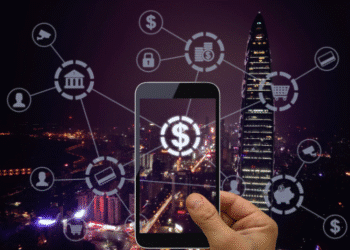Forget the Naysayers, Payments Behavior Will Change en Masse

There is a certain gloat from reps at established FinTech vendors when they talk about Isis and Google Wallet. “It’s not like they’ve made any traction,” the vendors say, “if they ever will.”
Certainly, the years since their (too) high-profile launches have not been kind to Isis and Google Wallet. The promise of “mobile wallet applications to end all mobile wallet applications” just has not materialized. Even this blogger’s expectations have been shortsheeted.
One of the criticisms of the Isis-Google construct is that neither could muster much consumer adoption. Now, there are many permutations to this, but one myth that must be dispelled is that consumer behavior will never change. It will. Rather, it has.
I’ve got to explain with a little story. I wake many more mornings, sometimes as early as 5 am (for heaven’s sake!), to exercise. Such are the requirements of the work/life/avoid-heart-disease balance. At 5 am, I can barely think straight. I am just trying to get to the gym to fulfill my exercise obligation, nothing more. For some reason, I am not in the mood to drag my physical wallet with me — it’s bulky, I’m tired, I don’t really need it. For a while I took it along anyway, just in case. But as my use of the Starbucks mobile app increased, I found that I was, largely without thinking about it, leaving my wallet home. If there is anything I might buy on the way home from the gym, it would be a coffee. With the Starbucks app, I didn’t need my wallet — I could just pay with my phone. So my wallet stays at home.
Without realizing it, my payments behavior had changed. My preference altered to payment via mobile device rather than with a credit card. Granted I am a focus group of one, but the truth is, I am no different from any other consumer. When faced with the option of easy, secure payment via mobile device vs. the relatively cumbersome process of paying with a credit card that includes signing a silly slip of paper, consumers will opt for payment via mobile device. FIS officials report that they are starting to see evidence of this among users of its mobile contactless payment service, which is called Cardless Cash Access, down in Deleware, and I am not surprised. FIS says that some users of mobile wallet product — mainly college students attending the University of Delaware — are increasing their payments at certain vendors, like frozen-yogurt shops, by 300%. The FIS officials, when they saw the data, were convinced it was wrong, so they convened a focus group. Sure enough, the convenience of stopping by the frozen-yogurt shop on the way home from working out (what’s with the working out angle?!?) for a quick purchase meant that they were simply buying more frozen yogurt.
This blog is not to convince you to exercise more. It is, however, to suggest that behaviors, however hardwired, can and will change. We shouldn’t forget that.











